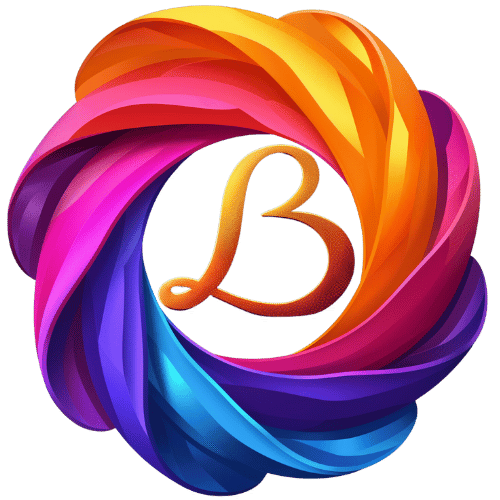Mindfulness journaling is a powerful tool for enhancing mental well-being by fostering self-awareness and emotional regulation. This practice combines the benefits of mindfulness with the reflective process of journaling, helping individuals manage stress, anxiety, and other mental health challenges. Mindfulness journaling is increasingly recognized as an effective method for boosting mental health and overall wellness.
“Mindfulness journaling helps individuals process their emotions and gain clarity.” – Jon Kabat-Zinn, mindfulness expert and author.
Jon Kabat-Zinn’s quote emphasizes the importance of mindfulness journaling in understanding and managing emotions, highlighting its role in promoting mental clarity.
What is Mindfulness Journaling?
Mindfulness journaling involves writing about thoughts, feelings, and experiences with a focus on the present moment. This practice encourages individuals to observe their thoughts and emotions without judgment, fostering greater self-awareness and emotional insight. It can be done through various formats, including free writing, guided prompts, and reflective entries.
Key Features of Mindfulness Journaling
- Present-Moment Awareness: Writing with a focus on current thoughts and feelings.
- Non-Judgmental Observation: Observing thoughts and emotions without criticism.
- Emotional Exploration: Delving into feelings and experiences to gain deeper insights.
“Mindfulness journaling allows you to step back and observe your inner world with compassion.” – Sharon Salzberg, meditation teacher and author.
Sharon Salzberg’s quote highlights the compassionate and introspective nature of it.

Benefits of Mindfulness Journaling
It offers numerous benefits for mental health, making it a valuable practice for individuals seeking to enhance their emotional well-being. It helps in stress reduction, emotional regulation, and personal growth.
Reducing Stress and Anxiety
It can help reduce stress and anxiety by providing an outlet for expressing and processing emotions.
- Emotional Release: Writing about stressful experiences can alleviate emotional tension.
- Clarity and Perspective: Journaling helps clarify thoughts and gain perspective on challenging situations.
- Mindfulness Practice: Incorporating mindfulness into journaling promotes relaxation and stress relief.

Enhancing Emotional Regulation
By fostering self-awareness, mindfulness journaling aids in better understanding and managing emotions.
- Identifying Triggers: Journaling helps identify emotional triggers and patterns.
- Developing Coping Strategies: Writing about emotions encourages the development of healthy coping mechanisms.
- Improving Emotional Intelligence: Regular practice enhances emotional intelligence and empathy.
Promoting Self-Reflection and Growth
It supports personal growth and self-improvement through regular self-reflection.
- Goal Setting: Journaling allows for setting and tracking personal goals.
- Self-Discovery: Writing helps uncover insights about oneself and personal values.
- Gratitude Practice: Incorporating gratitude entries fosters a positive outlook and appreciation for life.
“Mindfulness journaling can transform your relationship with yourself and foster personal growth.” – Tara Brach, psychologist and author.
Tara Brach emphasizes the transformative potential of it in fostering self-awareness and personal development.
How to Start Mindfulness Journaling
Starting this practice is simple and can be tailored to individual preferences. It can be done with a few basic steps and tools.
Choose Your Journaling Tools
Select a journal and writing tools that inspire you to write regularly.
- Journal or Notebook: Choose a journal that feels comfortable and inviting.
- Writing Tools: Use pens, pencils, or digital devices that you enjoy using.
- Quiet Space: Find a quiet and comfortable space for journaling.
Set a Regular Journaling Schedule
Establish a routine to make mindfulness journaling a consistent practice.
- Daily Practice: Aim to write daily, even if it’s just for a few minutes.
- Set a Time: Choose a specific time of day for journaling, such as in the morning or before bed.
- Start Small: Begin with short entries and gradually increase the duration as you become more comfortable.
Use Mindfulness Techniques
Incorporate mindfulness techniques to enhance the journaling experience.
- Deep Breathing: Start with a few deep breaths to center yourself.
- Present-Moment Focus: Write about your current thoughts, feelings, and sensations.
- Non-Judgmental Observation: Observe your thoughts and emotions without judgment.
“Starting a mindfulness journaling practice requires patience and consistency, but the benefits are well worth the effort.” – Dr. Kristin Neff, self-compassion researcher and author.
Dr. Kristin Neff emphasizes the importance of consistency and patience in establishing a mindfulness journaling practice.
Guided Prompts for Mindfulness Journaling
Using guided prompts can help structure your mindfulness journaling practice and provide inspiration for your entries. Mindfulness journaling prompts can range from exploring emotions to reflecting on daily experiences.
Emotional Exploration Prompts
- How am I feeling right now?
- What emotions have I experienced today, and what triggered them?
- How can I be more compassionate towards myself and others?
Self-Reflection Prompts
- What are three things I am grateful for today?
- What challenges have I faced recently, and what have I learned from them?
- What goals do I want to achieve, and what steps can I take to reach them?
Present-Moment Awareness Prompts
- What thoughts and sensations am I experiencing in this moment?
- Describe a recent experience in detail, focusing on the present moment.
- What can I see, hear, smell, and feel around me right now?
“Guided prompts can enhance your mindfulness journaling practice by providing direction and inspiration.” – Jack Kornfield, meditation teacher and author.
Jack Kornfield highlights how guided prompts can enrich the mindfulness journaling experience by offering structure and focus.

Integrating Mindfulness Journaling into Daily Life
To maximize the benefits of mindfulness journaling, it can be integrated into daily life alongside other mindfulness practices. It can complement meditation, yoga, and other mindfulness activities.
Combine with Meditation
Start or end your meditation sessions with mindfulness journaling to deepen your practice.
- Pre-Meditation Journaling: Write about your intentions or feelings before meditating.
- Post-Meditation Reflection: Reflect on your meditation experience and any insights gained.
Use in Yoga Practice
Incorporate it before or after yoga sessions to enhance mindfulness.
- Pre-Yoga Intention Setting: Write about your intentions for your yoga practice.
- Post-Yoga Reflection: Reflect on how you feel after your practice and any observations.
Daily Mindfulness Practice
Incorporate it into your daily routine to cultivate ongoing mindfulness.
- Morning Journaling: Start your day with a mindfulness journaling session to set a positive tone.
- Evening Reflection: End your day with a reflective journaling session to process your experiences.
“Integrating mindfulness journaling into daily life can enhance overall mindfulness and well-being.” – Dr. Richard Davidson, neuroscientist and mindfulness researcher.
Dr. Richard Davidson emphasizes the holistic benefits of incorporating it into daily routines.
The Future of Mindfulness Journaling
As interest in mindfulness and mental health continues to grow, mindfulness journaling is likely to become an even more popular and accessible practice. It will evolve with new techniques, tools, and technologies.
Digital Journaling Tools
Advancements in digital technology will make mindfulness journaling more accessible and convenient.
- Journaling Apps: Use apps designed for mindfulness journaling with guided prompts and features.
- Digital Notebooks: Utilize digital notebooks and tablets for a seamless journaling experience.
- Online Communities: Join online journaling communities for support and inspiration.
Integration with Therapy and Coaching
Mindfulness journaling will increasingly be integrated into therapeutic and coaching practices.
- Therapeutic Journaling: Therapists will use journaling as a tool for clients to process emotions and experiences.
- Mindfulness Coaching: Coaches will incorporate journaling into mindfulness programs for personal development.
Expanding Research
Ongoing research will continue to explore the benefits and applications of mindfulness journaling.
- Mental Health Benefits: Studies will further investigate the impact of journaling on mental health conditions.
- Personal Development: Research will explore how journaling contributes to personal growth and self-awareness.
- Technological Integration: Research will examine the effectiveness of digital journaling tools and techniques.
“The future of mindfulness journaling is bright, with endless possibilities for enhancing mental health and personal growth.” – Dr. Daniel Goleman, psychologist and author.
Dr. Daniel Goleman’s quote reflects the promising future of mindfulness journaling as a tool for mental health and personal development.
Mindful offers valuable resources on mindfulness practices and journaling. To explore more about the benefits of mindfulness journaling, visit Psychology Today.
















Thanks for sharing. I read many of your blog posts, cool, your blog is very good.